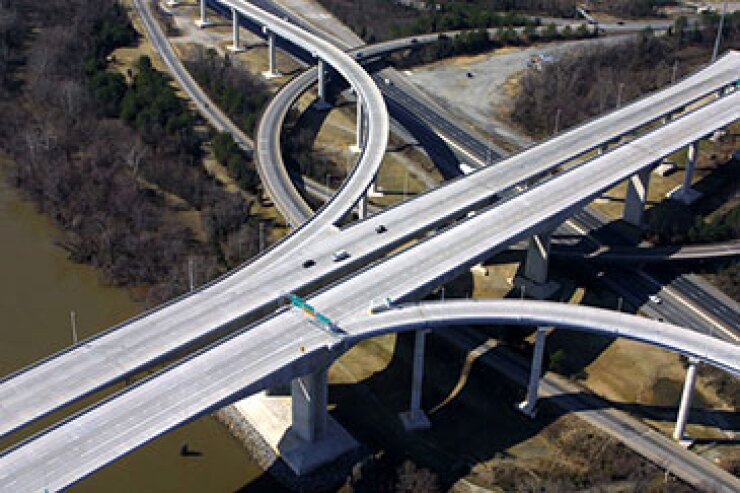
DALLAS -- Virginia will receive payments totaling $1.65 billion from the private partner selected to build and operate 20 miles of tolled express lanes on I- 66 outside the Washington Beltway for the next five decades.
Gov. Terry McAuliffe said Thursday that the state will sign a 50-year contract with I-66 Express Mobility Partners to finance, build, and operate the 22 miles of high-occupancy tolled express lanes between the I495 Beltway in Fairfax County and Gainesville in Prince William County.
The winning group said it would make an upfront $500 million concession payment to the state, spend $800 million on transit projects within the corridor over the next 50 years, and provide $350 million over 50 years to the Northern Virginia Transportation Authority for future road and transit efforts to reduce congestion in the I-66 corridor.
The partnership includes lead partners Cintra and Meridam North America, and main contractors Ferrovial Agroman US Corp. and Allan Myers VA Inc.
The private partners will invest more than $3 billion in the project, said Meridiam chairman Jane Garvey.
McAuliffe rejected a proposal from Express Partners, which included Transurban and Skanska.
"Both teams that submitted bids for this project met the criteria the Commonwealth set for it, but Express Mobility Partners' proposal was the best for Virginia from both a technical and financial standpoint," McAuliffe said.
The P3 agreement could save Virginia taxpayers more than $2.5 billion, he said.
McAuliffe said when he took office in January 2014 that the state's contribution to the project was estimated at $900 million to $1 billion.
Revisions to the state's P3 procurement process and an announcement that Virginia was considering the use of conventional debt financing for the I-66 toll lane project resulted in more favorable proposals from the private sector, McAuliffe said.
Two groups of investors submitted financial proposals to the state in October that complied with the stipulation that the state's contribution be limited to no more than $600 million, he said.
The selected financial plan will require zero public investment, McAuliffe said.
"And just for icing on the cake, on top of all of that, Express Mobility Partners will write the Commonwealth of Virginia a check for $500 million that we'll receive early next year," McAuliffe said.
The I-66 project is the first to go through the state's more rigorous P3 evaluation process intended to increase competition and accountability, he said.
"P3's are a powerful tool for procuring new projects, but they only work if taxpayers' interests are protected," he said.
"Tolling revenue is very important. It is also very lucrative," McAuliffe added. "If we are going to give tolling revenue away, we're going to negotiate a very, very tough deal."
The Virginia Department of Transportation will likely sign a comprehensive agreement with the private partners early next month with the financial close in mid-2017, said transportation secretary Aubrey Layne.
The lanes should be operational by 2022, he said.
The private investment will release up to $300 million of state and regional transportation funding that had been set aside for the I-66 project, Layne said.
Express Mobility Partners' offer of private funding for more than $1 billion in future congestion-relieving projects within the I-66 corridor was an important factor in the selection of the group, Layne said.
"I can look in the taxpayer's eye and say we've gotten the best deal possible," he said.
Two express lanes will be added to three free lanes in each direction, with space in the median reserved for future bus or rail transit lines. Vehicles with at least two passengers would be able to travel in the toll lanes at no charge.





